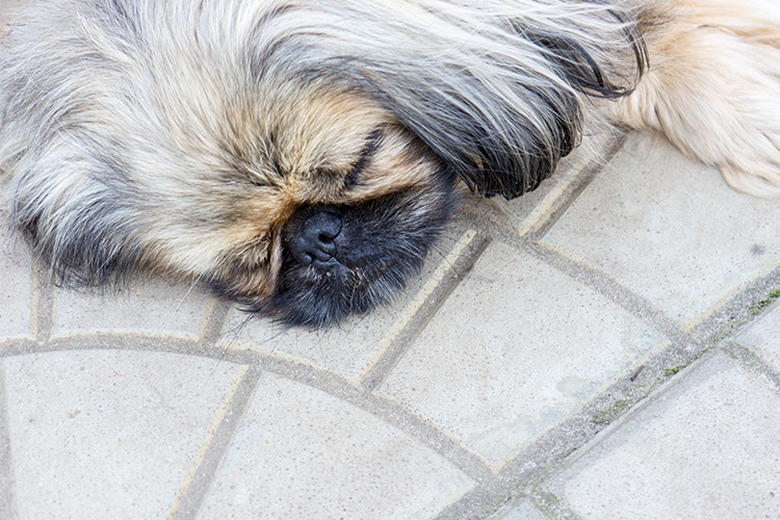Can I Use Bleach To Clean Dog Pee Off Cement?
Bleach is not the best solution for cleaning a dog pee stain on concrete. It's ineffective at getting rid of odors and may even be dangerous to use. When your dog can smell his own urine, it may tempt him to pee in the same spot, which only continues the cycle. Unfortunately, many other household cleaners are likely to leave you with the same problem. The good news is that there are safe, natural, and more effective alternatives for cleaning up dog urine in your home. You can also take steps to prevent these accidents from happening in the future.
Bleach is ineffective and possibly dangerous
Bleach is ineffective and possibly dangerous
Bleach might sanitize the area, but it won't cover the smell, which means it won't stop your dog from doing it again. To prevent your dog from peeing in the same spot over and over, you must remove all traces of urine completely. This can be difficult since cement is more absorbent than other types of flooring.
Not only is bleach ineffective but it may also be dangerous. Ammonia is highly concentrated in dog urine. When chlorine bleach and the ammonia in your dog's pee come into contact with each other, it creates chlorine gas, which creates fumes that are highly toxic to anyone nearby, including you and your dog. Chlorine gas can cause a variety of issues, such as nausea, dizziness, respiratory problems, itchy eyes, coughing, wheezing, and in severe cases, even death.
Best urine remover for concrete
Best urine remover for concrete
A safer and more effective dog urine cleaner is a two-step process. A natural cleaner followed by an enzymatic treatment for cement should clean up the mess without leaving the urine smell behind. Start by spot cleaning with vinegar and water at a ratio of 2:1 and then rinse. Next, the enzymatic treatment gets rid of the last remaining traces of urine.
Enzymatic treatments work through a process that utilizes bacteria. The bacteria produce enzymes that consume waste, including stains and odors. They break down the uric acid into carbon dioxide and water and help to prevent recurring accidents in the same spot. You can test how well it works with ultraviolet light. An ultraviolet flashlight illuminates pet urine and can tell you whether the enzymatic spray has done its job. If used correctly, even the tiny crevices of the cement should be urine-free.
Potty training your dog
Potty training your dog
You can avoid the mess altogether by making sure your dog is potty trained. When it comes to potty training your dog, the earlier, the better. Keeping him on a consistent schedule can help you achieve positive results.
Take your dog out to pee when he wakes up and before he goes to bed and take him out for regular bathroom breaks throughout the day. Watch to make sure he does his business on walks and between walks so that he's emptying his bladder throughout the day.
On average, puppies can hold their urine for about one hour for every month of age. This means a 6-month-old puppy can probably hold his urine for six hours at a time and shouldn't go longer than that between bathroom breaks. When he gets older and his bladder gets bigger, he'll probably be able to hold it for longer. Reward him every time he does his business outside. If you see an accident starting to happen, take him out right away so he finishes where he's supposed to and then praise him.
